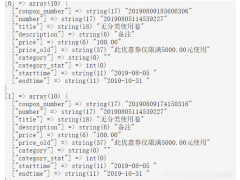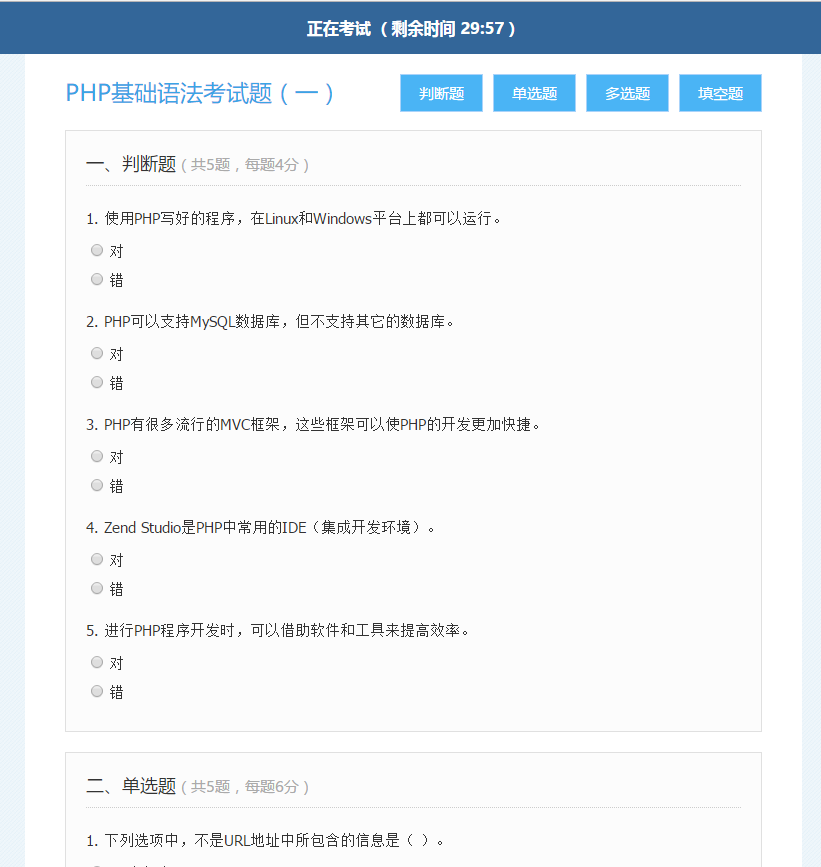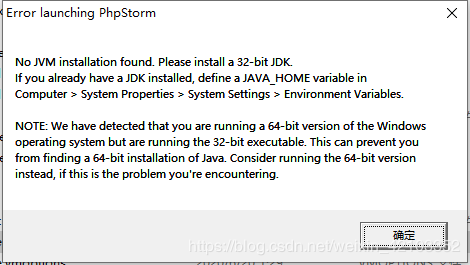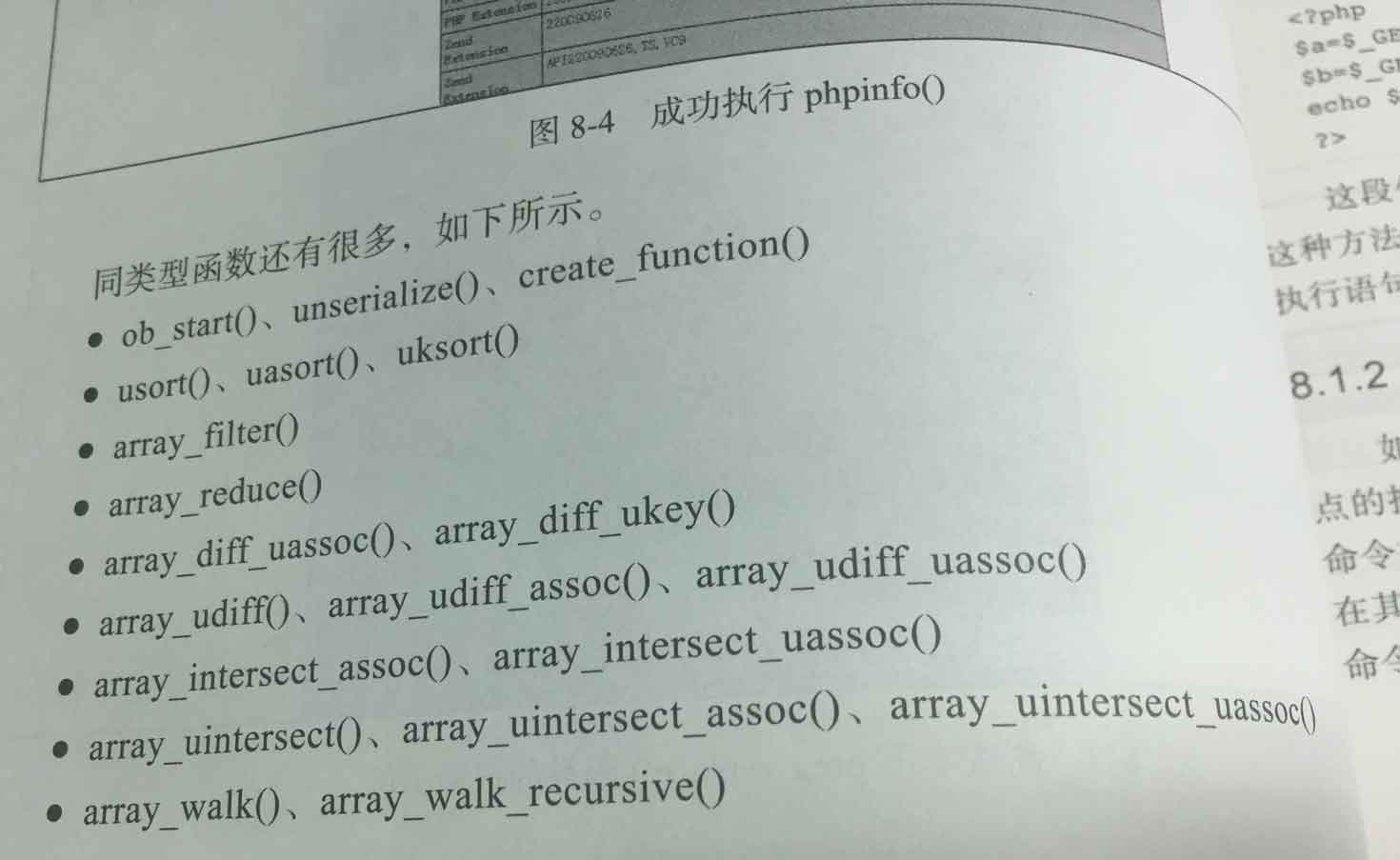下面小编就为大家分享一篇php之header的不同用法总结(实例讲解),具有很好的参考价值,希望对大家有所帮助。一起跟随小编过来看看吧
1、header()函数的作用是:发送一个原始 HTTP 标头[Http Header]到客户端。
header(string,replace,http_response_code)
/*string:必需。规定要发送的报头字符串。
replace:可选。指示该报头是否替换之前的报头,或添加第二个报头。
默认是 true(替换)。false(允许相同类型的多个报头)。
http_response_code:可选。把 HTTP 响应代码强制为指定的值。*/注意:必须在任何实际的输出被发送之前调用 header() 函数。
2、 用法1:跳转页面
header("Location:https://baidu.com"); //正常跳转
header('Refresh: 3; url=https://www.baidu.com'); //3s后跳转
//在header作跳转时,避免发生错误后,代码继续执行,一般加个exit;用法2:声明content-type(我经常拿来决解乱码)
header('content-type:text/html;charset=utf-8');用法3:返回响应状态码
header('HTTP/1.1 403 Forbidden');用法4:执行下载操作(隐藏文件的位置)
header('Content-Type: application/octet-stream'); //设置内容类型
header('Content-Disposition: attachment; filename="example.zip"');//设置MIME用户作为附件
header('Content-Transfer-Encoding: binary'); //设置传输方式
header('Content-Length: '.filesize('example.zip')); //设置内容长度用法5:控制浏览器缓存
header( 'Expires: Mon, 26 Jul 1997 05:00:00 GMT' ); //如果服务器上的网页经常变化,就把它设置为-1,表示立即过期
header( 'Last-Modified: ' . gmdate( 'D, d M Y H:i:s' ) . ' GMT' );
header( 'Cache-Control: no-store, no-cache, must-revalidate' );
header( 'Cache-Control: post-check=0, pre-check=0', false );
header( 'Pragma: no-cache' );用法6:
3、更多实例
<?php
// ok
header('HTTP/1.1 200 OK');
//设置一个404头:
header('HTTP/1.1 404 Not Found');
//设置地址被永久的重定向
header('HTTP/1.1 301 Moved Permanently');
//转到一个新地址
header('Location: http://www.example.org/');
//文件延迟转向:
header('Refresh: 10; url=http://www.example.org/');
print 'You will be redirected in 10 seconds';
//当然,也可以使用html语法实现
// <meta http-equiv="refresh" content="10;http://www.example.org/ />
// override X-Powered-By: PHP:
header('X-Powered-By: PHP/4.4.0');
header('X-Powered-By: Brain/0.6b');
//文档语言
header('Content-language: en');
//告诉浏览器最后一次修改时间
$time = time() - 60; // or filemtime($fn), etc
header('Last-Modified: '.gmdate('D, d M Y H:i:s', $time).' GMT');
//告诉浏览器文档内容没有发生改变
header('HTTP/1.1 304 Not Modified');
//设置内容长度
header('Content-Length: 1234');
//设置为一个下载类型
header('Content-Type: application/octet-stream');
header('Content-Disposition: attachment; filename="example.zip"');
header('Content-Transfer-Encoding: binary');
// load the file to send:
readfile('example.zip');
// 对当前文档禁用缓存
header('Cache-Control: no-cache, no-store, max-age=0, must-revalidate');
header('Expires: Mon, 26 Jul 1997 05:00:00 GMT'); // Date in the past
header('Pragma: no-cache');
//设置内容类型:
header('Content-Type: text/html; charset=iso-8859-1');
header('Content-Type: text/html; charset=utf-8');
header('Content-Type: text/plain'); //纯文本格式
header('Content-Type: image/jpeg'); //JPG图片
header('Content-Type: application/zip'); // ZIP文件
header('Content-Type: application/pdf'); // PDF文件
header('Content-Type: audio/mpeg'); // 音频文件
header('Content-Type: application/x-shockwave-flash'); //Flash动画
//显示登陆对话框
header('HTTP/1.1 401 Unauthorized');
header('WWW-Authenticate: Basic realm="Top Secret"');
print 'Text that will be displayed if the user hits cancel or ';
print 'enters wrong login data';
?>以上这篇php之header的不同用法总结(实例讲解)就是小编分享给大家的全部内容了,希望能给大家一个参考,也希望大家多多支持编程学习网。
沃梦达教程
本文标题为:php之header的不同用法总结(实例讲解)


猜你喜欢
- PHP中PDO事务处理操作示例 2022-10-15
- php微信公众号开发之秒杀 2022-11-23
- Laravel balde模板文件中判断数据为空方法 2023-08-30
- PHP仿tp实现mvc框架基本设计思路与实现方法分析 2022-10-18
- PHP实现微信支付(jsapi支付)流程步骤详解 2022-10-09
- PHP简单实现二维数组的矩阵转置操作示例 2022-10-02
- 用nohup命令实现PHP的多进程 2023-09-02
- windows下9款一键快速搭建PHP本地运行环境的好工具(含php7.0环境) 2023-09-02
- laravel实现按月或天或小时统计mysql数据的方法 2023-02-22
- laravel通用化的CURD的实现 2023-03-17









